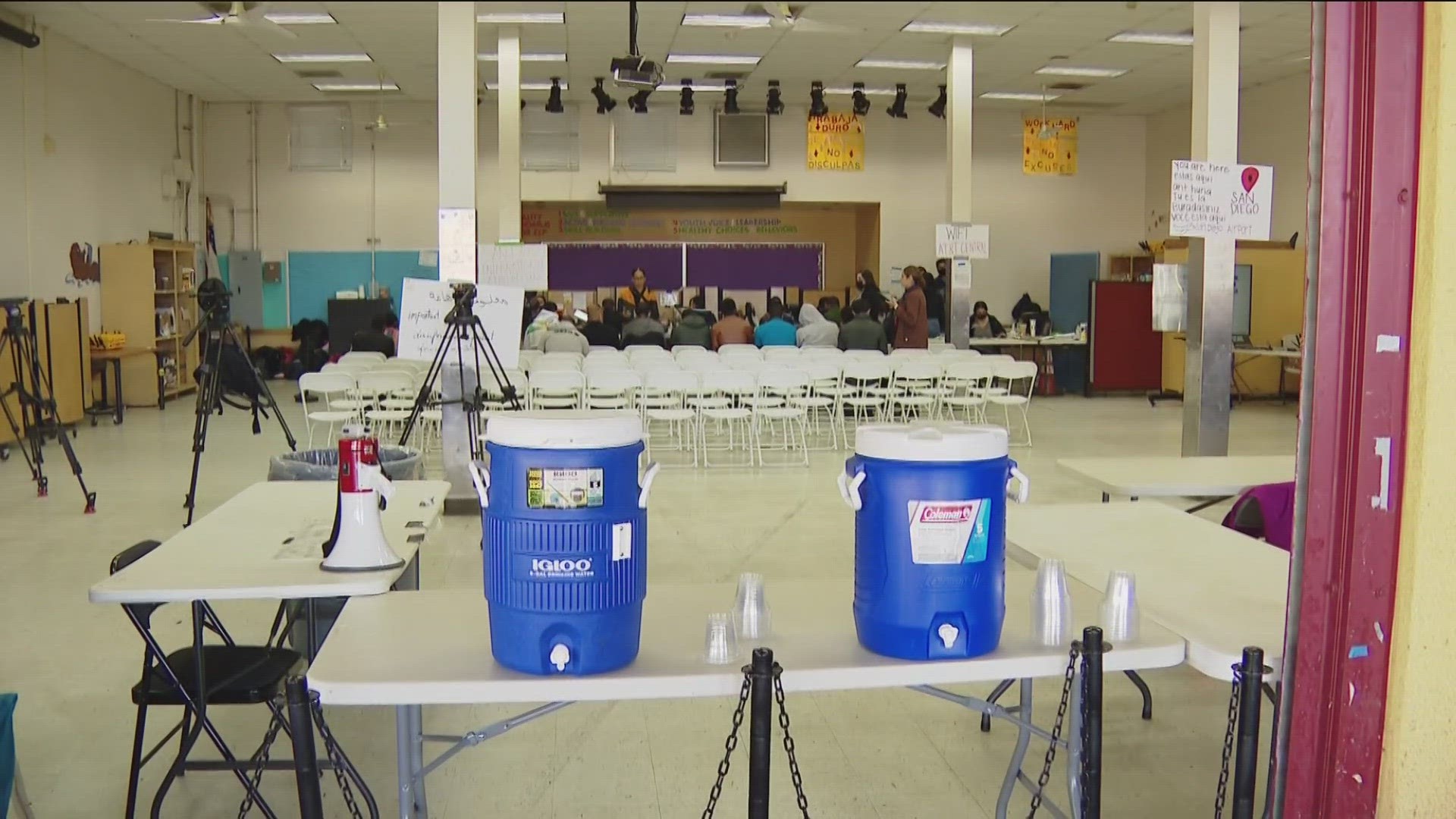SAN DIEGO — A center that provides asylum seekers with resources to get to their final destinations could close as early as next month if more funding isn't provided.
SBCS, the organization running the center, says the $3 million dollars provided by the County of San Diego to run the center, could run out by mid-December.
"I'm afraid that if we don't have a location like this, we're going to go back to a place where people are dropped in different locations throughout the county. That is not safe for them, it's not safe for everyone," said San Diego County Chair Nora Vargas.
She invited the media to tour the site Friday morning. SBCS asked reporters not to disclose the location for security reasons.
"We need the federal government to support us," said Chair Vargas. "The funding will end, we are scheduled to end by mid-December and that's going to be in the middle of the holidays when things get cold."
Chair Vargas said approximately 500 to 700 migrants are dropped off at the center each day. CBS 8 was there as a busload of people arrived Friday morning. The group was made up of young men, all from different countries.
"On average, it's maybe 8 hours an individual will stay here," said Mauricio Torre, VP of Operations at SBCS. "I would say, rough estimate, 80 percent hit the ground, get all the different [things] situated and from there they move on to their final destination."
Workers at the center pick up migrants from a border patrol processing facility in Otay Mesa. The center also provides transportation to the airport.
Congressman Juan Vargas attended the tour Friday. He said the federal government provided $60 million to provide resources for migrants. However, he said the county didn't receive any of that money because the county didn't apply for it.
"If you watch, there will be no children here. There will be very few women," said Congressman Vargas. "Most of the $60 million is run by the other programs. This is one program, there's a whole bunch of programs. Catholic Charities runs the biggest one. Most of the money goes to them because they applied for it."
Chair Vargas was asked by a reporter, why didn't you apply for it?
"The county is the partner with different organizations. What we do is we work very closely with various nonprofit organizations, Catholic Charities, and Jewish Family Services. We're part of a bigger consortium. They applied, and we partnered with them. It was a decision that we all made together. We seek funding. They're the ones that ended up receiving that funding," she said.
A county spokesperson later sent CBS 8 the following information:
"This was FEMA money and the $60 million was for the entire country. Since Catholic Charities was doing that work, we all thought it best they apply directly with our support. They did so. We couldn’t have applied too.
It is not a competitive grant in the traditional sense. FEMA decides each region’s allocation, they announce the allocation and who the fiscal agent is, and THEN the awardee submits the application with how they will spend the funds. As with most regions around the country, in our region, the dollars go to Catholic Charities since they do the on the groundwork. It isn’t like they issue a grant opportunity notice and everyone submits applications. In our region, as with most across the country, it has made the most sense to get the dollars right into the hands of those doing the work, rather than us be the middleman. The allocation to the region does not change based on who the fiscal agent is- the allocation is the allocation. So it isn’t like there was a potential for more money that we didn’t go after."
When asked if she will be seeking additional money from the county if federal money is not provided, Chair Vargas said that is a discussion that will happen down the road if needed.

